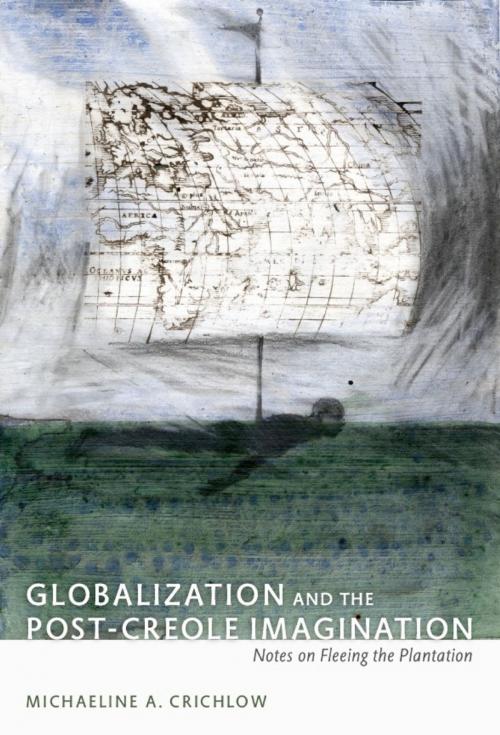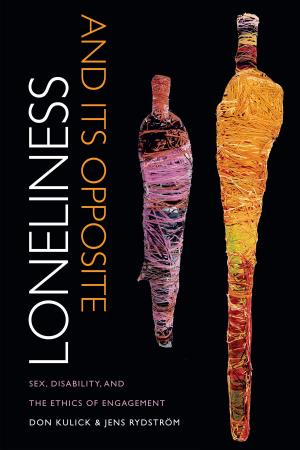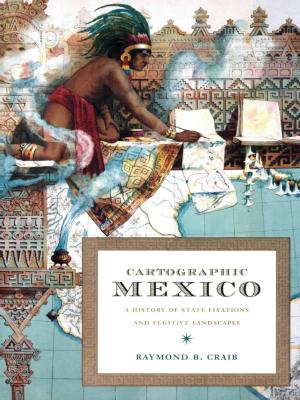Globalization and the Post-Creole Imagination
Notes on Fleeing the Plantation
Nonfiction, Social & Cultural Studies, Social Science, Anthropology, Sociology| Author: | Patricia Marie Northover, Michaeline Crichlow | ISBN: | 9780822392453 |
| Publisher: | Duke University Press | Publication: | July 7, 2009 |
| Imprint: | Duke University Press Books | Language: | English |
| Author: | Patricia Marie Northover, Michaeline Crichlow |
| ISBN: | 9780822392453 |
| Publisher: | Duke University Press |
| Publication: | July 7, 2009 |
| Imprint: | Duke University Press Books |
| Language: | English |
Globalization and the Post-Creole Imagination is a major intervention into discussions of Caribbean practices gathered under the rubric of “creolization.” Examining sociocultural, political, and economic transformations in the Caribbean, Michaeline A. Crichlow argues that creolization—culture-creating processes usually associated with plantation societies and with subordinate populations remaking the cultural forms of dominant groups—must be liberated from and expanded beyond plantations, and even beyond the black Atlantic, to include productions of “culture” wherever vulnerable populations live in situations of modern power inequalities, from regimes of colonialism to those of neoliberalism. Crichlow theorizes a concept of creolization that speaks to how individuals from historically marginalized groups refashion self, time, and place in multiple ways, from creating art to traveling in search of homes. Grounding her theory in the material realities of Caribbean peoples in the plantation era and the present, Crichlow contends that creolization and Creole subjectivity are constantly in flux, morphing in response to the changing conditions of modernity and creatively expressing a politics of place.
Engaging with the thought of Michel Foucault, Michel Rolph-Trouillot, Achille Mbembe, Henri Lefebvre, Margaret Archer, Saskia Sassen, Pierre Bourdieu, and others, Crichlow argues for understanding creolization as a continual creative remaking of past and present moments to shape the future. She draws on sociology, philosophy, postcolonial studies, and cultural studies to illustrate how national histories are lived personally and how transnational experiences reshape individual lives and collective spaces. Critically extending Bourdieu’s idea of habitus, she describes how contemporary Caribbean subjects remake themselves in and beyond the Caribbean region, challenging, appropriating, and subverting older, localized forms of creolization. In this book, Crichlow offers a nuanced understanding of how Creole citizens of the Caribbean have negotiated modern economies of power.
Globalization and the Post-Creole Imagination is a major intervention into discussions of Caribbean practices gathered under the rubric of “creolization.” Examining sociocultural, political, and economic transformations in the Caribbean, Michaeline A. Crichlow argues that creolization—culture-creating processes usually associated with plantation societies and with subordinate populations remaking the cultural forms of dominant groups—must be liberated from and expanded beyond plantations, and even beyond the black Atlantic, to include productions of “culture” wherever vulnerable populations live in situations of modern power inequalities, from regimes of colonialism to those of neoliberalism. Crichlow theorizes a concept of creolization that speaks to how individuals from historically marginalized groups refashion self, time, and place in multiple ways, from creating art to traveling in search of homes. Grounding her theory in the material realities of Caribbean peoples in the plantation era and the present, Crichlow contends that creolization and Creole subjectivity are constantly in flux, morphing in response to the changing conditions of modernity and creatively expressing a politics of place.
Engaging with the thought of Michel Foucault, Michel Rolph-Trouillot, Achille Mbembe, Henri Lefebvre, Margaret Archer, Saskia Sassen, Pierre Bourdieu, and others, Crichlow argues for understanding creolization as a continual creative remaking of past and present moments to shape the future. She draws on sociology, philosophy, postcolonial studies, and cultural studies to illustrate how national histories are lived personally and how transnational experiences reshape individual lives and collective spaces. Critically extending Bourdieu’s idea of habitus, she describes how contemporary Caribbean subjects remake themselves in and beyond the Caribbean region, challenging, appropriating, and subverting older, localized forms of creolization. In this book, Crichlow offers a nuanced understanding of how Creole citizens of the Caribbean have negotiated modern economies of power.















